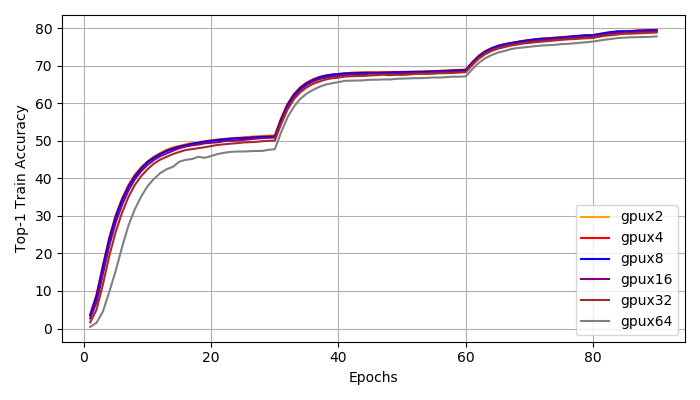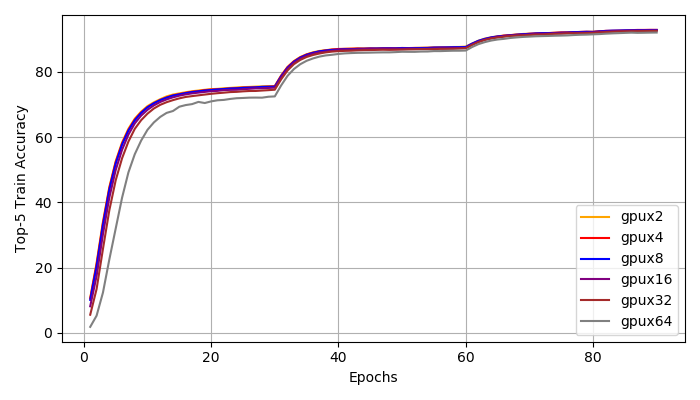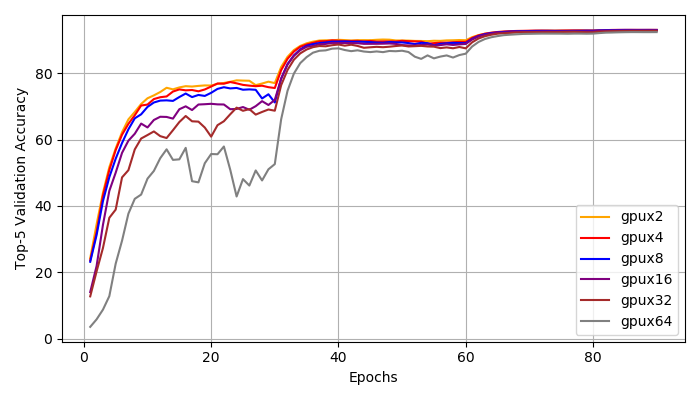...
Training Throughput: Figure~\ref{fig:training_throughput} shows the scalability of training global througput (images/sec) with respect to the number of GPUs. We are able to achieve near linear scaling in training throughput. Note that training from 2 GPUs to 4 GPUs is within node scaling, while the training from 4 GPUs to 64 GPUs is across node scaling.
Top1, Top5 Accuracy: We achieve distributed training speed-up without the loss of accuracy. All experiments reached a top1 accuracy of 76\% and a top5 accuracy of 93\%. According to Figure~\ref{fig:top1_train}, \ref{fig:top1_val}, \ref{fig:top5_train}, \ref{fig:top5_val}, all experiments have very similar learning curve. We do notice that with larger global batch size, the training is more unstable at early stages (epoch 1-30). However, the small and large batch size training curves match closely after 30 epochs and they all reach the same accuracy at the end.
I/O Bandwidth}. Figure~\ref{fig:io_bw} shows the I/O Bandwidth (GB/s) and IOPS of our file system throughout our full system ImageNet training using 64 GPUs. Between 10th and 60th epoch, the average bandwidth is $3.30$ GB/s and the average IOPS is $36.5$K.
...




